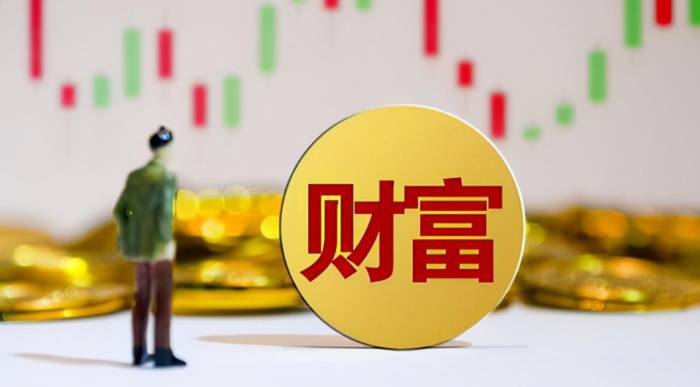I previously wrote an article on a similar topic, discussing the future trends.
It was also in February of this year, when micro-cap stocks experienced a significant sell-off.
Many retail investors, indifferent to the de-retailization, always believe that without retail investors, the market would collapse.
The capital market is a game that protects the rights of capital, not a game that protects small and medium-sized players.
When you go to a casino, does the dealer protect their own interests or the interests of the gamblers?
Of course, if there are very few players, leading to a decline in business, the dealer will also try to attract customers and improve their environment.
In addition, the capital itself must protect large-scale players, not small-scale players.
Any policy introduced is aimed at the entire market, not at a specific group like retail investors.
As the market deliberately introduces more and more funds, the demand for retail investors will become smaller and smaller.
Just like there was a period when retail investors collectively refused to subscribe to new shares, and in the end, it was the public funds that took the bill with the money of retail investors.Some people say that retail investors should collectively abandon public mutual funds, but if you look at the data, you will find that in the past two years, the proportion of institutional funds in the capital raising of public mutual funds is steadily increasing.
There are some trends that are irreversible, and it was destined on the day when the registration system arrived.
Regardless of whether retail investors are ready or not, what should come will definitely come.
Let me talk about what these junk stocks have been doing in the past six months and why it has led to such results.
In September last year, the market introduced a lot of policies, one of which was to restrict the reduction of major shareholders.
The new regulation mentioned that if major shareholders do not distribute dividends, they cannot reduce their holdings.
Here is a key point: the vast majority of small-cap companies, regardless of their performance, will introduce market makers, that is, speculators, to boost the market value, facilitating their own high-position reduction.
When the reduction and cashing out of this matter is in vain.
The value of the market maker is gone, and they have to retreat.
Some of the market makers are traditional speculators, and some are quantitative funds.Thus, at the end of last year, the trend of speculating on "demon stocks" became prevalent, with major players quickly pushing up the prices and selling off, creating a temporary boom.
By the end of January this year, it was the first peak of this direction, and also the first large-scale extermination for those retail investors with insatiable greed.
This time, the "Nine Measures of the State" just became the fuse, making a second extermination for this part of the funds.
For those retail investors who still held hope for loss-making stocks, micro-cap stocks, and small-cap stocks in February and March, it was another devastating blow.
No market decline happens overnight, just as the market experienced three stages of thousands of stocks hitting the daily limit down from 5178, it's the same principle.
The process of "de-individualization" is a slow one, once it starts, there is no turning back.
Immature retail investors are gradually eliminated, which is a law, and this law is irreversible.
In any mature market, the proportion of retail investors is very low, and they invest through public funds and ETF funds.
Even in the unique A-share market of China, this process is inevitable in its development.
However, the capital market will not completely eliminate them, they will leave investment channels for mature investors.Retail investors, or mature investors, generally have three main avenues, or three ways to invest in the market.
1. Focus on index investing.
Index ETFs are set to become the mainstream of the future market, and this major trend has not changed at all.
In mature foreign markets, retail investors mainly invest in index funds.
The market has taken the step towards a registration system, which implies the indexation of retail investment.
Because indices do not step on landmines, they do not select junk stocks, and the risk of indices is lower.
The majority of stocks included in the index are "blue-chip" stocks, and the overall return of the index is likely to be better than the average of individual stocks in the market.
The so-called bull market in foreign stock markets is actually a bull market for indices, not for all stocks.
The registration system will inevitably mix in a lot of junk listings, which are definitely landmines for retail investors.In the future, the phenomenon of speculative capital banding together to hype junk stocks will become increasingly rare. It may seem like opportunities to make quick money are diminishing, but in reality, this is standardizing the overall market investment and becoming more friendly to retail investors.
The fluctuation of the index will be smaller than that of individual stocks, which means the probability for retail investors to get rich quickly is lower.
However, on the bright side, the losses brought by the index will also be significantly less, as gains and losses come from the same source.
2. Embrace high dividend stocks.
There is another path for retail investors, not called stock speculation, but investment.
That is, to band together and buy high dividend stocks, waiting for the realization of dividends.
Of course, high-quality listed companies can not only pay dividends but also provide a good capital return with their growing performance, which is the increase in stock prices.
In fact, retail investors who invested in high dividend directions a few years ago have already made money.
Take a close look at the increase of the CSI Dividend Index, and you will know that this direction is not as bad as everyone thinks, with an annualized return of more than 10%.
You should know that where can you invest now to give you a relatively stable, low-risk return of about 4% in dividends + about 6% in asset appreciation.Even with short-term fluctuations, the dividends distributed will not be reduced.
On this point, it can outperform many retail investors who are busy with short-term trading.
3. Group together to speculate on leading stocks.
The last type is actually the mainstream investment method at present, and it can be used for a long time in the future.
Group together to speculate on leading stocks.
Every round of market has a main line and a leader, just group together.
For example, the biggest hot spot of this round of market is the low-altitude economy, then group together with the leader of the low-altitude economy and hold it in stages.
As long as the hot spot is still there, the leader will not die.
Grouping together refers to retail investors and institutional funds grouping together, and pure retail investor grouping together is no good.
Embrace mainstream investment institutions, select the industry leaders, and then wait for the market to finish.However, which direction is the main line and which is the leading force, retail investors need to have their own discernment.
In the future market, only mature retail investors will survive.
The so-called "de-retailization" is not about eliminating retail investors, but about the institutionalization of retail investment.
Irrational retail investors will become fewer and fewer, gradually being weeded out by the market. Those who survive are relatively rational retail investors.
Their investment in the market is more rational, whether in stock selection, holding period, and trading style, they are closer to professional investors.
Have you noticed that there are very few post-90s and post-00s retail investors? The number of retail investors in the future will become fewer and fewer.
The mission of the times bestowed on retail investors is changing, and the term "retail investor" will gradually exit the stage of history.
Of course, for those retail investors who survive, the future market will be more standardized, the ecology will be better, and there will be more opportunities to make money.
Avoiding the most fierce scythe at the moment is a victor of the times.






























Join the Discussion